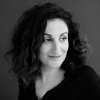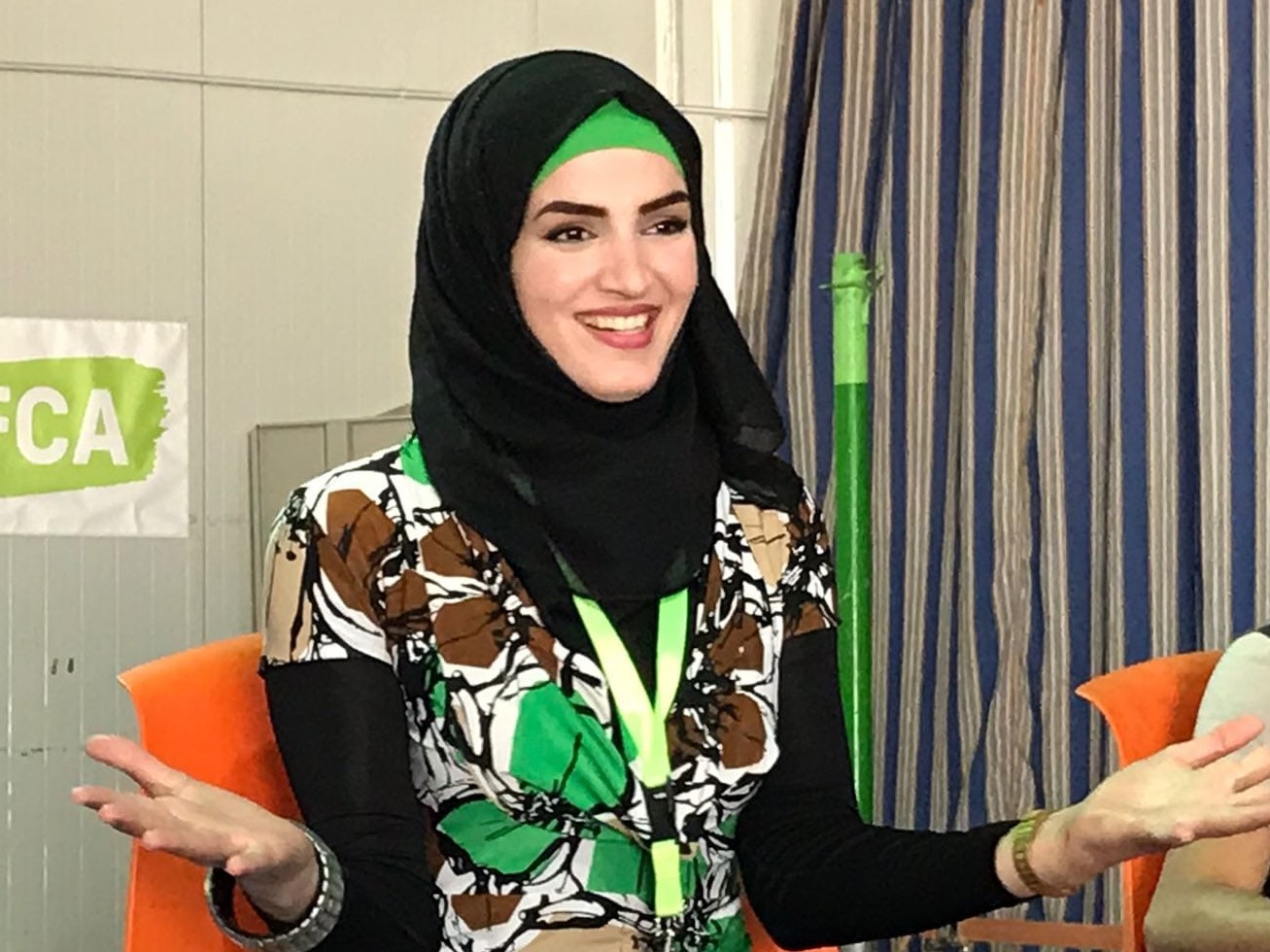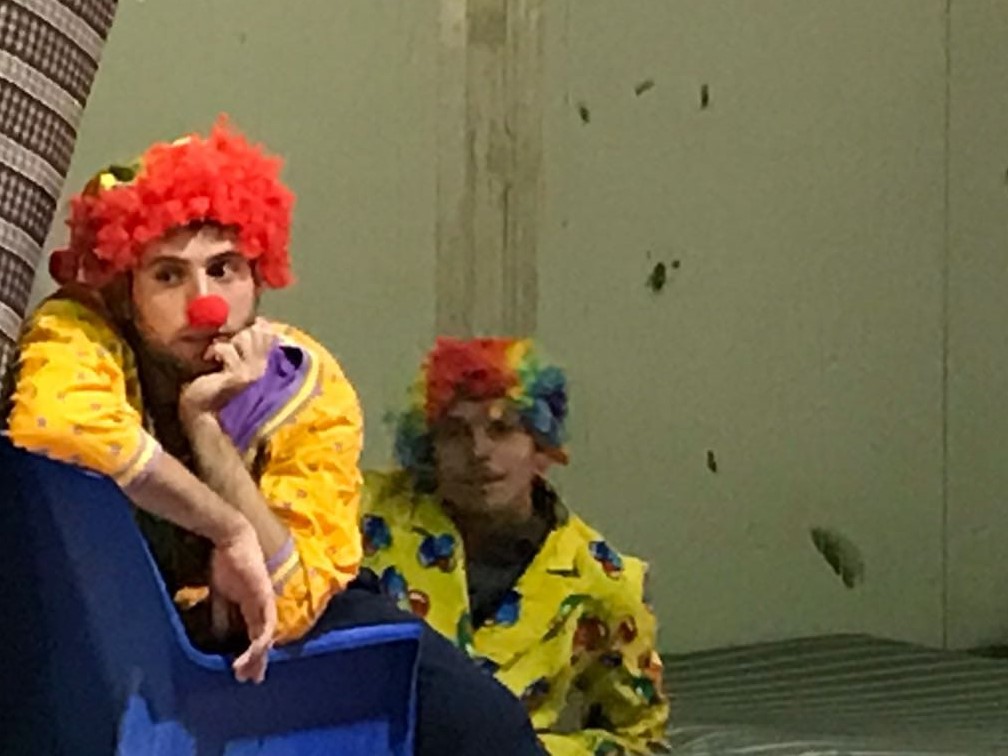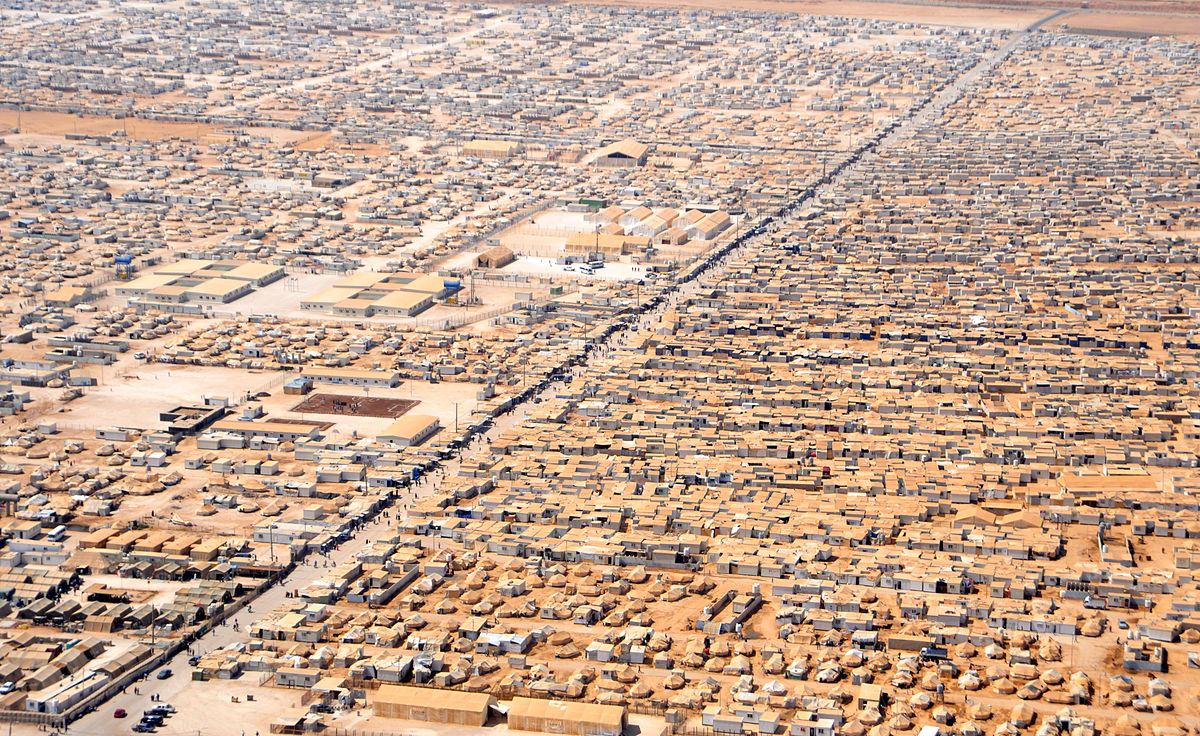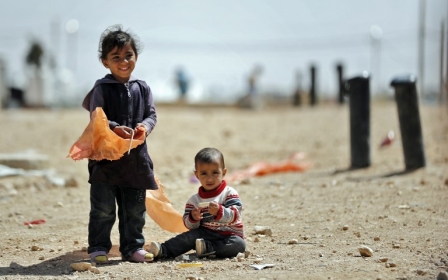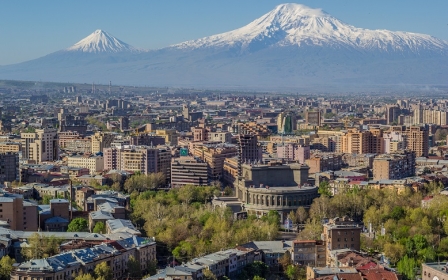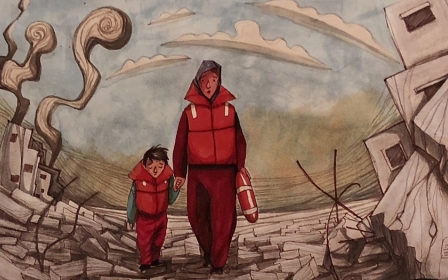Laughter amid despair: Teaching circus skills to the Syrians of Zaatari camp
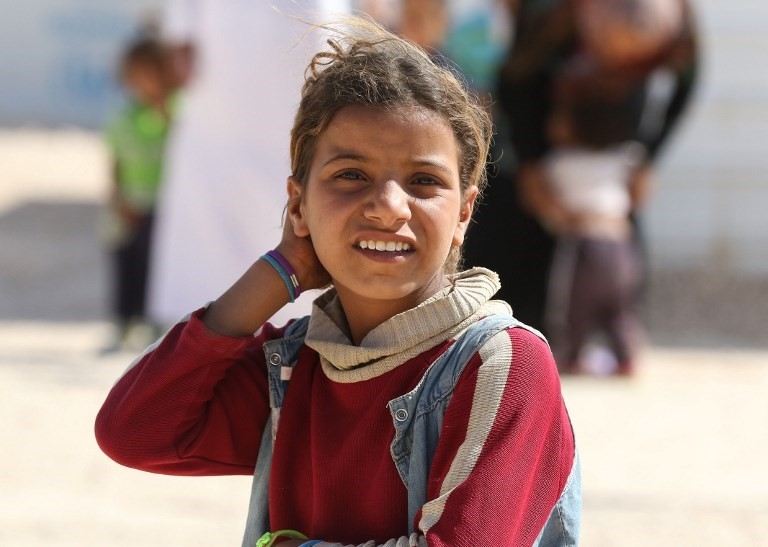
I took a deep breath and dared myself to speak the closing words of our week together, quoting a man born in Beit Jala, in Palestine: “My father always told me that the Syrians are the most advanced, intelligent, hard-working and good-looking of all the Arabs.”
This was met with a mighty roar, the first time I saw the deep love and national pride in the Syrian heart. “You are not refugees - you are great artists,” I continued, “and it has been a deep honour to work with you.”
Another roar; a sigh of relief. We ended our week of laughter with tears and hugs, and the unbearable truth that I go back home to England and they stay here in the sand.
‘We are all from Syria’
I had been invited by Clowns Without Borders UK to work in Finn Church Aid’s compound at Zaatari, the 80,000-strong refugee camp in Jordan that continues to grow. The goal was to teach the teachers clowning, comedy and basic theatre skills.
New MEE newsletter: Jerusalem Dispatch
Sign up to get the latest insights and analysis on Israel-Palestine, alongside Turkey Unpacked and other MEE newsletters
Our interpreter, Bassam Aljabr, met us there. He knows all the performers and the children who come to watch and join in. With his perfectly ironed shirt, spectacles and volunteer jacket, I assumed he was a volunteer from Jordan.
After a week of working with her, I poke my tongue out and finally make her laugh
“From Syria, of course,” he answered, correcting me. “We are all from Syria.” Aljabr is from Daraa, re-taken by the Assad government last summer, but he could easily be an uncle of mine, and I speak to him with the deference I learned in childhood.
Seeing the grubby children running and cycling around in the sand, I had the strange feeling that they were freer than my children in the UK, all protected and cushioned in suburbia. Engaging with Aljabr, I realised how meaningless the label “refugee” is as a sum total of someone’s identity. “I have a Masters in English literature. I am a psychologist,” he explained. “Look,” he lifted his glasses, “all the books have made me cross-eyed!”
Education and work
Anyone expecting to find refugees waiting for handouts will be disappointed. Everyone is smart. The girls wore matching clothes and makeup, and everyone was bursting with pride for the world they had created in the desert of northern Jordan.
Jordan granting work permits for refugees who can find employment outside the camp has helped people’s personal dignity. Jordanian universities also open in the evenings for Syrians, with coaches taking young adults into Amman to study and work. There is a job centre in the camp and 13 schools. That's not enough but now, at least, more than 60 percent of children here have an education.
“There are only two words to describe life here in Zaatari: complete life,” said Aljabr, who was among the first to arrive at the camp when it was just a sea of tents. Today, it is more like a city. “You can now get anything you want here, except a car. We have the largest souk in the world, longer than three kilometres … [There are] restaurants, cafes, electronics, second-hand clothes.”
Clowning, drama and acting, taught by international NGOs, is very important for the children here, he said. “All of us here in the camp are looking for fun and for the natural life.” The trauma suffered by adults and children who have fled the violence of war, however, is still present. “When children heard Jordanian planes, they lay flat on the ground and screamed,” Aljabr said. “We try and make them forget this day by day.”
Success stories
The “International Syrian Circus” was formed at Zaatari in 2013, with the support of aid groups. First, the Nablus Circus came from Palestine for four months, and then the Magenta Circus came from Finland for three months. The core company of around a dozen young performers train other children in the camp, passing on everything they learn from visiting companies. Nearly 200 girls and boys have received the training, Aljabr said.
Muna, 22, has been at Zaatari for five years. A circus trainer, she also has a diploma in hospital management and hopes to develop her skills so that she can travel with the circus outside of the camp: “I dream of building my own [circus] company.”
Another camp resident - a serious little girl, aged eight, with a husky voice - washes her hands with medical efficiency before each meal. Wearing jeans and a hoodie, she shows me her circus skills, doing back flips across the large practice room. After a week of working with her, I watched her enjoying herself and laughing at the comedy routine we had developed.
“She is one of our success stories,” Aljabr said, describing how the young girl saw her uncles and aunts shot inside her home in Daraa. The girl, along with her sister and mother, fled, but the injuries her mother sustained left her disabled.
With all the fun we were having, it was easy to forget the horror stories that created Zaatari. This is the world's largest camp for Syrians refugees, one that opened in July 2012 and which, less than a year later, already housed 60,000 people fleeing the civil war.
“I feel the people outside of Jordan have forgotten our story and our cause,” Aljabr said. “We are just numbers that have been killed or survived.”
Extraordinary moment of hope
There were two clowns in our troupe of performers who got the most laughs - a kind of Laurel and Hardy act, but both of them tubby like Hardy.
At the end of the week, I headed to the car to leave the camp and one of them, Mohammed Kafri, was sitting in the back, performing a clown act of a bored child on a long car journey. He nodded at me blankly and looked out the window.
We started to drive towards the heavily patrolled exit and at the last minute he jumped out and waved goodbye, pointing at his tin hut: “My house, my house.”
Like all good comedy, Kafri’s little routine opened my heart before breaking it. As I drove back to the hotel before my flight home to the UK, I realised that this week’s extraordinary moment of hope was a tiny drop in an ocean of injustice.
The views expressed in this article belong to the author and do not necessarily reflect the editorial policy of Middle East Eye.
Middle East Eye delivers independent and unrivalled coverage and analysis of the Middle East, North Africa and beyond. To learn more about republishing this content and the associated fees, please fill out this form. More about MEE can be found here.


